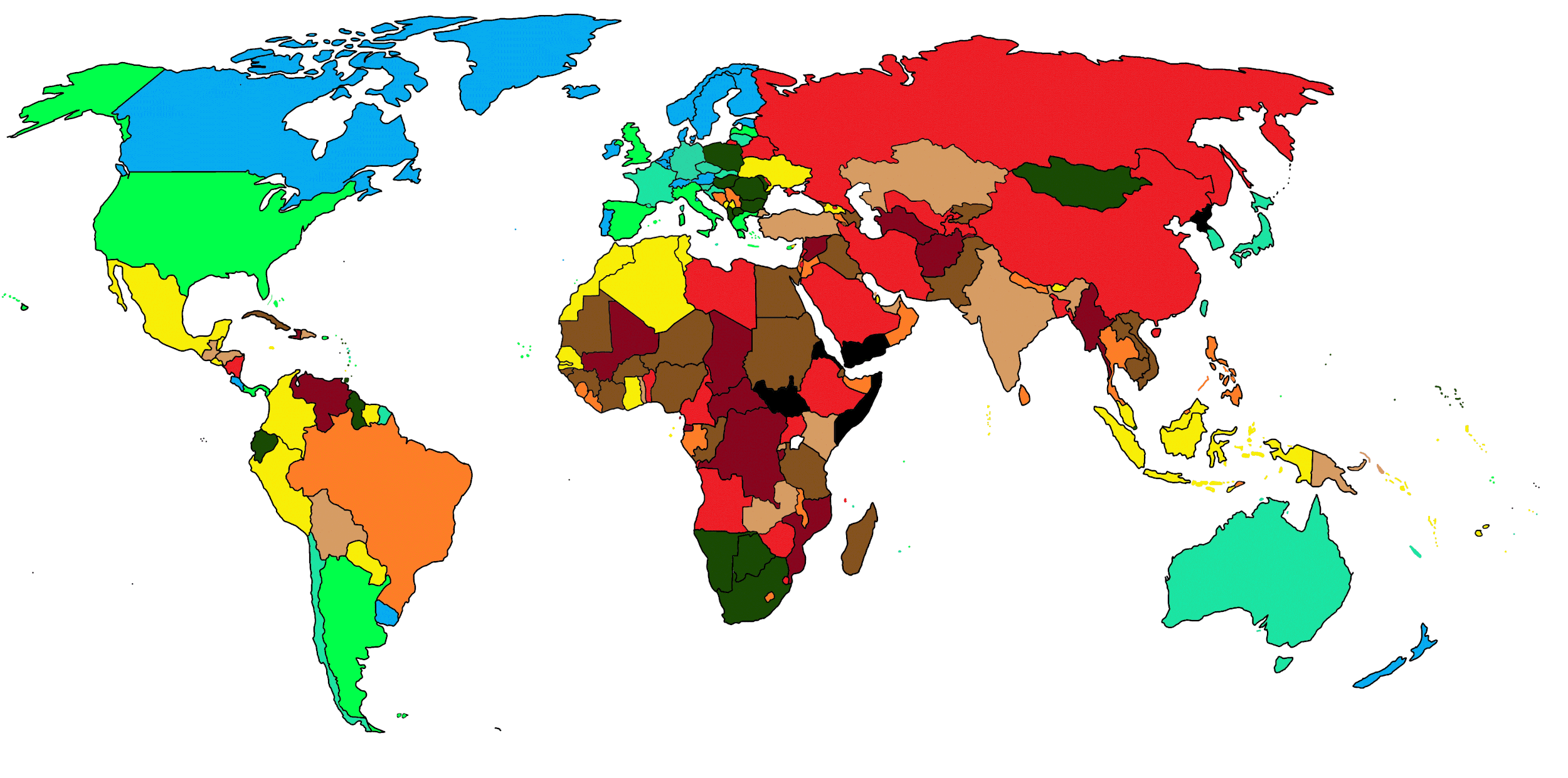
About the Index
The Standard of Living Index was created with the goal of creating a holistic scoring system to measure every facet of a country’s standard of living. Countries are scored based on nine weighted categories, human rights (25%), democracy (18%), freedom (12%), economy (12%), health (10%), corruption (8%), competency (5%), future (5%), and actions abroad (5%). Countries are sorted into categories representing a range of ten points (blue is the highest, and black is the lowest). Pages for each country can be found under these categories in the banner at the top of the page.
Human Rights
Human Rights measure the extent to which a country willfully violates the human rights of its citizens. Countries can receive a fifty-point cap if the human rights of their citizens are violated by a third party, such as armed insurgency or organized crime.
Democracy
Democracy measures the extent to which a country’s leadership is reflective of the will of the people. Countries lose points by managing unfair elections or failing to do so in the first place. Absolute monarchies or dictatorships that do not run elections receive a one.
Freedom
Freedom measures a country’s commitment to free expression. This category is different from human rights, as matters of bodily autonomy or personal safety are not included. Countries lose points by placing restrictions on freedoms of speech, religion, expression, or assembly.
Economy
Economy measures the wealth of the citizens of a country. It is not a simple measure of GDP per capita. While the category was intended to be holistic, aspects of this category were still exploitable and alterations to this category will be made in future years.
Health
Health takes into account certain key statistics in an attempt to comprehensively measure the health of a country’s citizens. Statistics measured include life expectancy, obesity rate, and malnourishment rate. Health also measures the quality of a country’s healthcare system.
Corruption
Corruption measures the extent to which graft and embezzlement affect daily life or the political landscape in a given country. Measures of both petty and grand corruption are taken into account. Countries that receive a one suffer from debilitating and constant acts of corruption at all levels of government.
Competency
Competency measures the extent to which factors out of the government’s control affect a country’s standard of living. Countries that struggle to maintain their entire territory or face significant problems with armed insurgency or organized crime struggle in the competency category.
Future
Future measures how a country’s score is projected to change in the future. Countries with growing economies or improving political climates perform better in this category. Countries that are doomed to climate change receive point caps based on their projected lifespan.
Actions Abroad
Actions Abroad exists primarily as a category to punish countries that behave poorly overseas. Isolationist countries are automatically given a seventy. A country can only score a perfect one hundred if they do not maintain an expeditionary military force. Countries that provide foreign aid or assist foreign countries gain points, while countries that are belligerent towards neighbors or pariah states lose points.
About the author
Corbin Hartwig, a freshman at George Washington University, created the scoring system singlehandedly and has been working on the index and associated website over the course of two years. He plans to pursue a career in international affairs and intends on using this index as a stepping stone for future projects.
Further Research
All research to date for the 2021 Index has been completed. Scoring values for all countries can be found here, organized as a spreadsheet. Further plans for future editions are in the works.